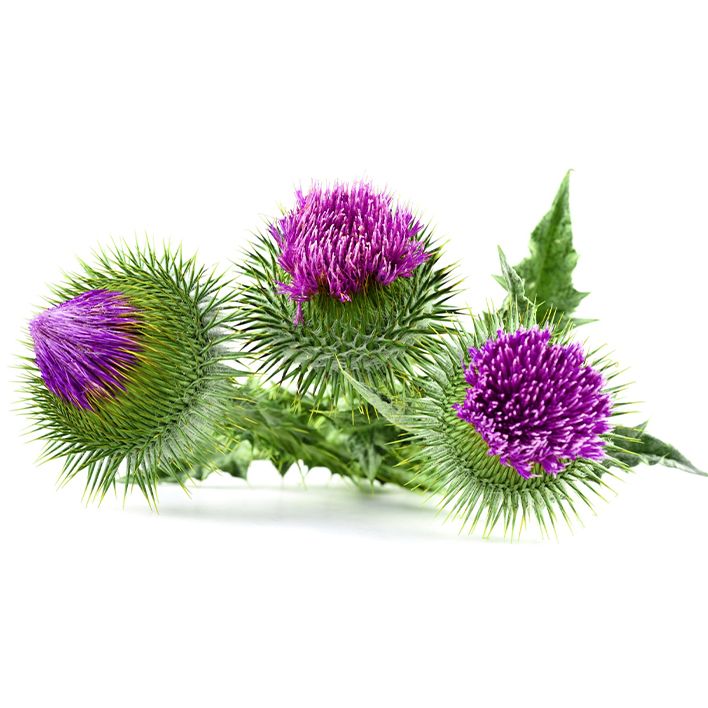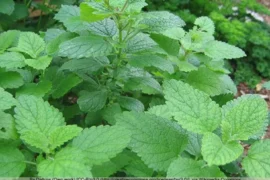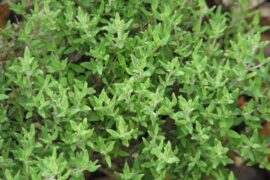Table of Contents
ToggleOverview
Milk thistle, also known as Silybum marianum, is a flowering herb that has been used for thousands of years for its health benefits. While it is primarily recognized as a natural remedy to support liver health, its potential extends far beyond that. From aiding in detoxification to providing antioxidant protection, milk thistle is an outstanding herb in modern herbal practice.
What is Milk Thistle?
Milk thistle is a spiny, purple-flowered plant native to the Mediterranean region and parts of Asia. It belongs to the Asteraceae family, the same family that include daisies and sunflower. It has been used in traditional medicine since ancient times, with historical records suggesting its use by ancient Greek and Roman healers. The name “milk thistle” is believed to come from the white streaks on the leaves, resembling milk stains.
The primary active ingredient in milk thistle is silymarin, a group of compounds known for their strong antioxidant and anti-inflammatory properties. Silymarin is primarily extracted from the seeds of the plant and is believed to be responsible for many of the herb’s health related benefits.

Health Benefits of Milk Thistle
Milk thistle has been extensively researched for its health benefits, particularly in relation to liver function. Here are some of its benefits:
1. Supports Liver Health
The liver plays a vital role in filtering toxins from the bloodstream, digesting fats, and processing nutrients. Over time, exposure to toxins, alcohol, and certain medications can harm the liver. Milk thistle is well known for its ability to protect the liver from damage and support its regeneration. Silymarin, the active compound in milk thistle, has been shown to protect liver cells from free radicals, stimulate the production of new liver cells, and even reduce inflammation within the liver.
Milk thistle is commonly used to treat liver conditions such as hepatitis, fatty liver disease, and cirrhosis. Some studies indicate that silymarin may help lower liver enzyme (AST and ALT) levels, which are often elevated in liver diseases. Another research indicates that milk thistle could benefit individuals with non-alcoholic fatty liver disease.
2. Antioxidant Properties
Silymarin is a powerful antioxidant, which means it helps neutralize harmful free radicals in the body. These free radicals are unstable molecules that can result in cellular damage, leading to inflammation, aging, and chronic diseases such as cancer and heart disease. By neutralizing these harmful free radicals, milk thistle can help prevent cellular damage, contributing to long-term health and wellness.
3. May Aid in Digestion
Milk thistle may assist with digestive issues, especially those associated to bile production. The herb stimulates bile flow, which is essential for digesting fats and absorbing fat-soluble vitamins. This can be particularly helpful for individuals experiencing indigestion, bloating, or gallbladder issues.
4. Supports Skin Health
Due to its anti-inflammatory and antioxidant properties, milk thistle is increasingly used in skincare products. The herb may help treat skin conditions like acne, eczema, and psoriasis. It is believed to reduce the inflammation and oxidative damage associated with these skin issues, promoting healthier, and clearer skin.
Research indicates that milk thistle contains compounds that may shield the skin from UV radiation. Another study shows that milk thistle has a polyphenol called silibinin which could help protect the skin from inflammation due to its anti inflammatory properties.
5. May Help Manage Blood Sugar Levels
Some studies suggest that a combining milk thistle with barberry might offer benefits for people with type 2 diabetes. Silymarin, found in milk thistle and berberine, present in barberry have been proven to improve insulin sensitivity and reduce blood sugar levels, making the combination a promising natural supplement for diabetes management. Nevertheless, more research is needed in this area to fully understand its effectiveness.
6. Potential Anti-Cancer Benefits
Although additional research might be needed, preliminary studies suggest that milk thistle may have anti-cancer properties. The antioxidants in milk thistle could potentially help slow the proliferation of cancer cells or reduce the risk of developing certain cancers, particularly liver and breast cancer. Some studies also indicate that it may enhance the effectiveness of conventional cancer treatments.
How to Take Milk Thistle
Milk thistle is available in various forms, such as seeds, capsules, tablets, powders, and liquid extracts. The most common method of consumption is through capsule, with dosages typically ranging from 140 mg to 600 mg per day, depending on personal factors and intended use.
When opting to take milk thistle as a supplement, look for one that contains standardized silymarin, as this ensures a consistent dose of the active compound. Always follow the dosage instructions on the product label or consult a healthcare provider to determine the right amount for you.
Is Milk Thistle Safe?
Milk thistle is generally considered safe for most people when taken in appropriate amounts. However, as with any supplement, there are some considerations:
- Possible Side Effects: Some people may experience mild gastrointestinal issues like diarrhea, bloating, or nausea while taking milk thistle. These side effects are typically rare and mild.
- Interactions with Medications: Milk thistle may interact with certain medications, including those prescribed for diabetes, blood pressure, and cholesterol, as well as drugs metabolized by the liver. Always consult with a healthcare provider before starting milk thistle, especially if you’re taking prescription medications.
- Allergic Reactions: Individuals who are allergic to plants in the Asteraceae family (like ragweed, daisies, or marigolds) may also be allergic to milk thistle.
Conclusion
Milk thistle has a long-standing history of use in traditional medicine, particularly for liver health. It can support your liver function, detoxify your body, and also possesses antioxidant and anti-inflammatory properties. As always, it is important to consult with a healthcare provider before starting any new supplement, especially if you have preexisting health conditions or are on medication.
With its broad spectrum of potential health benefits, milk thistle has proven to be more than just a liver tonic. It is a powerful herbal remedy with a variety of uses to help promote overall health and vitality. Integrating this herb into your diet could provide significant benefits, but only with the understanding of its effects and interactions.
Frequently asked questions (FAQs) about Milk Thistle
Does Milk Thistle help with weight loss?
Milk Thistle is not specifically a weight-loss supplement, but it may support weight management by promoting liver performance and detoxification. A healthy liver is important for regulating metabolism, fat storage, and digestion. However, Milk Thistle alone is not a complete solution for weight loss.
How long does it take for Milk Thistle to work?
The effects of Milk Thistle on liver health or detoxification can differ between individuals. Some individuals may begin to notice improvements in a few weeks, especially in terms of liver function and digestive health. For chronic conditions like liver disease, it may take several months of regular usage to observe significant changes.
Can Milk Thistle be taken with other medications?
Milk Thistle may interact with certain medications, particularly those that are metabolized by the liver, such as:
- Statins
- Antidepressants
- Blood thinners
- Some cancer medications
- It is important to speak with your healthcare provider before using Milk Thistle alongside other medications to avoid possible interactions.
Can I take Milk Thistle every day?
Yes, Milk Thistle is commonly used daily for liver health and detoxification. However, it is always advisable to follow the recommended dosage on the product label or consult with a healthcare provider to ensure you are taking the right amount for your needs.
Does Milk Thistle have anti-aging benefits?
Due to its antioxidant properties, Milk Thistle might provide some anti-aging benefits, such as reducing oxidative stress and protecting cells from damage. It may support skin health and improve the appearance of aging skin, though more research is needed in this area.
How is Milk Thistle different from other liver supplements?
Milk Thistle is considered one of the most effective natural herbs for liver health, primarily because of its active compound silymarin. While other liver supplements (like dandelion root or turmeric) may offer benefits, Milk Thistle is often considered the gold standard due to its strong antioxidant, anti-inflammatory, and liver-regenerating effects.
Can Milk Thistle lower cholesterol?
Some studies suggest that Milk Thistle may help lower cholesterol levels, particularly by improving liver function. Since the liver plays a key role in cholesterol metabolism, supporting its health with Milk Thistle may have a positive influence on cholesterol regulation.





